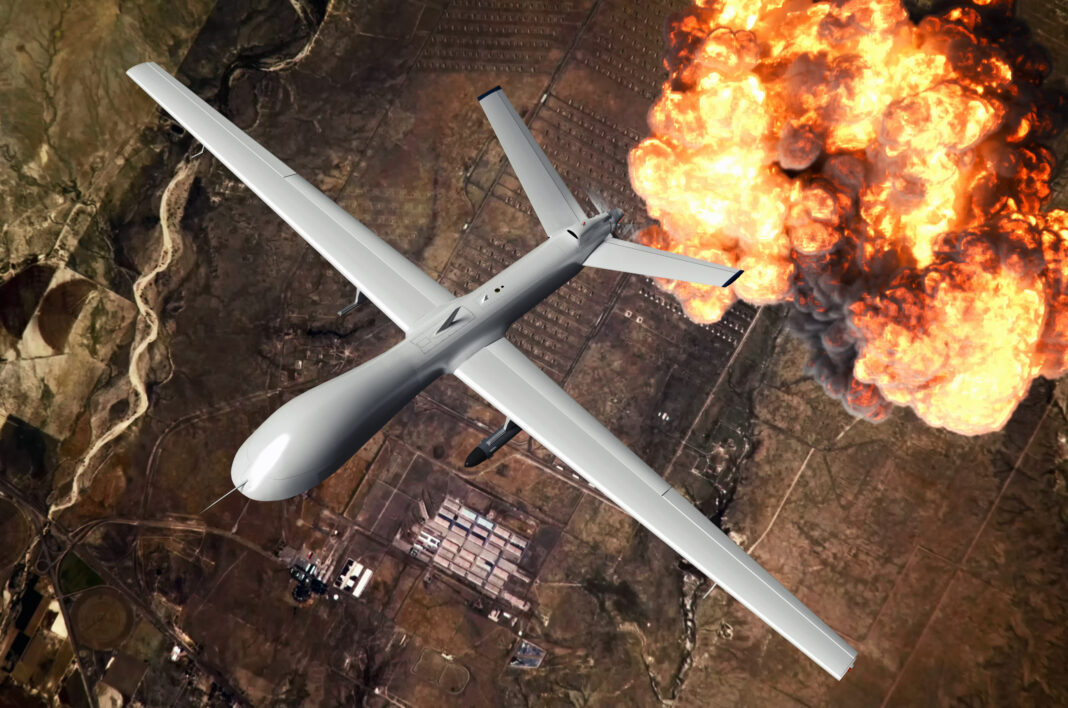by Anna Violante
The Sudanese Medical Syndicate and the Southern Emergency Committee reported that 46 civilians were killed and many more injured in an air strike by the Sudanese Army’s Air Force on Goro market in Mayo, south of Khartoum. Marie Burton, emergency coordinator for Médecins Sans Frontières (MSF), told Reuters: “Khartoum has been at war for almost six months. But still the volunteers … are shocked and overwhelmed by the scale of the horror that struck the city today.”
Three days after the incident, the situation is tragic. Not only did the drone strike occur in the city’s busiest market, but most hospitals are closed, and last Friday the South Khartoum Emergency Room said in a statement that Bashair University Hospital, one of the few still operating, was in danger of closing as supplies ran out and staff struggled to reach it. Ambulances are also not working and the South Khartoum Emergency Room, which continues to try to provide medical care and other services, has had to transport the injured by rickshaw or donkey cart.
South Khartoum is one of the most dangerous areas in the Country, occupied by the paramilitary rebel group Rapid Support Forces (RFS), who control much of Khartoum and the adjoining cities of Omdurman and Bahri and use residential buildings as hideouts while fighting the Sudanese Armed Forces (SAF). As the civil war has become more deadly and ruthless, those still in the capital are too poor to afford the cost of fleeing. Armed clashes between the SAF and the RFS have been going on since 15 April, and last week at least 51 people were killed in two separate days of attacks in western Omdurman, one of Sudan’s main cities. It’s estimated that the fighting has so far displaced more than 7 million people, and according to the latest Integrated Food Security Phase Classification (IPC) for the war-torn Country, at least 20.3 million people across Sudan are acutely food insecure and in need of food and livelihood assistance.
In a country that is supposed to be transitioning to democracy and peace, this is not an encouraging situation. Sudan has been ruled by General Abdel Fattah al-Burhan since 2022. After long-time cruel and bloodthirsty Dictator Al Bashir was deposed in 2019, a military-civilian Transitional Sovereignty Council took power, intending to lead the Country to democratic elections in 2026. But soon the military took over, the civilian president resigned and General al-Burhan became the Country’s supreme leader. His rival, Mohamed Hamdan Dagalo, often called Hemedti, head of the RFS, was also part of the TSC.
The SAF and the paramilitary RSF began fighting in April after tensions arose over the integration of their troops into the “democratic transition”. None of the mediation efforts have succeeded in stopping the fighting. Both leaders are tempted by absolute power and both have thousands of armed men at their disposal.
Whenever there are clashes, the two rival groups point the finger of blame at each other. This was the case again on Sunday, when the army denied any responsibility for the attack, claiming it was carried out solely against the paramilitaries, while the RSF accused them of deliberately harming innocent civilians.
It’s a fact that, despite several UN resolutions, human rights are never respected in Sudan. So much so that on 1 September, Amnesty International wrote an appeal to the UN Human Rights Council calling for an independent mechanism to be set up, pointing out that “impunity is at the heart of the current crisis… The failure of the international community to hold accountable those responsible for international crimes in Darfur decades ago has sent a dangerous message to all parties.” The appeal was followed by a report from Human Rights Watch, which highlights the violence on both sides: “Both sides have shown utter disregard for the laws of war, using heavy explosive weapons in densely populated areas. RSF has conducted widespread looting and rape. Beyond Khartoum, in West Darfur, the RSF and allied militias are responsible for destroying entire villages and attacking non-Arab communities, committing ethnically targeted killings and sexual violence.”
Now, in the aftermath of Sunday’s massacre, UN relief chief Martin Griffiths has stressed the need to allow access to people in need in Sudan; Hemedti has promised to allow the UN to “secure aid and ensure ease of operations for humanitarian personnel” in his occupied territories; Al-Buhran has toured Africa and the Middle East trying to build positive relations to avoid the country’s isolation and bankruptcy, and has again met with Eritrea’s leader al-Hilu to allegedly ask for support in fighting alongside the Sudanese army against the RSF; the US has imposed sanctions on selected RSF leaders, while South Sudan’s president, Salva Kiir has warned of the war’s devastating economic impact on neighbouring countries and lamented the invasion of over two hundred thousand refugees.
To learn more, read our Sudan conflict factsheet
On the cover photo, a drone air strike © andrey_l/Shutterstock.com
























